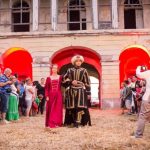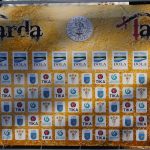We often forget how lucky we actually are to live in safe and peaceful country like Croatia. Of course, It would be nicer to have more employment opportunities to improve our economy and prevent more of our youth leaving, but we often overlook the fact that we live in a country full of potential, thankfully sometimes there is someone to remind us of that, people who fall in love with the little things we often don’t even notice…
Meet Laura del Carmen Velasco Farrera, a Mexicanwho moved from Aguascalientesu to… Slavonia. The reason for that was her passion for dance and her husband Vanja Dušić. Dance united them, first as dance partners, and then as life partners.
At the end of last year they got married and decided to stay in Osijek. Part of the path in following their dreams are also the satisified participants at Športsko-plesna udruga Feniks, students in Osijek and Vukovar, and the Croatian National Theatre in Osijek. We sat down with the couple and here’s what they shared with us:
How did you meet?
Laura del Carmen: Everything began back in 2014 when I visited my brother’s family in Zagreb. One dancer told me that the Croatian National Theatre in Osijek were in search of ballerinas. As a professional dancer, I didn’t hesitate for a second to call immediately and apply for a job. I took the bus and went to Osijek, a city I’d never even heard of before. Since Vanja was already in the ballet ensemble, I met him there.
Vanja: At first, we worked on The Nutcracker, and in two other projects we were dance partners. At the beginning, as it usually goes, we were friends, and after a few months of knowing each other, we started dating.
What are the biggest differences between Croats and Mexicans?
Vanja: Actually, we are very similar. Especially when it comes to mentality. Although, Mexicans are more conservative. When it comes to their personal life and family issues, they’re more closed off than we are.
During my stay in Mexico last summer I didn’t feel like a stranger there because both nationalities like to hang out and are always ready to joke and have fun. People are very kind and they accepted me. But one thing is a certain: Mexicans are more temperamental and louder than us!
Laura del Carmen: Yeah, it’strue, we’re much louder. We don’t mind sharing our happiness or excitement about something in front of people around us, no matter where we are at that moment. Even though sometimes people find that really odd here. As time goes by, I’m learning little by little to calm my temperament down, because many people told me I should be quieter when we’re out. (laughs)
The tempo of living can’t compare. Here people are too relaxed. Drinking coffee all day long with no hurry because there’s always time to do something.
Also, I think Croats complain too much. They grumble all the time and one day I even found myself complaining about such unimportant things, so I told myself: now you’re a real Croatian! (laughs) Of course, people in Mexico complain too, but not as much.
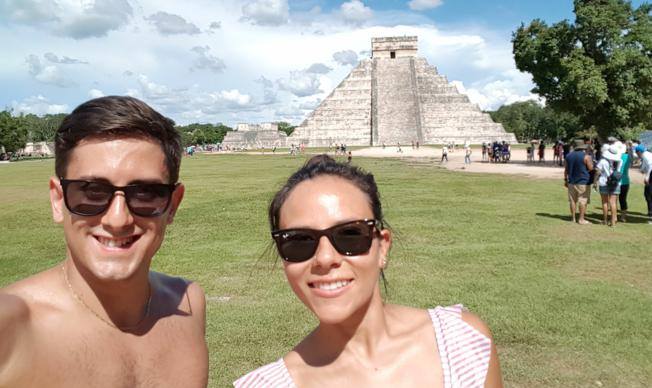
What was the hardest for you when you came to live here?
Laura del Carmen: At the first arrival to the supermarket, it was a little bit tedious. Not only could I not find everything that I needed, but also when it came to payment, there is so much difference when compared to Mexico where salespeople are more kind, it’s normal for them to ask you if you need anything else and they also leave the cash register to bring you something if you do need it. Here, the most important thing is just to pay and move on.
The language is pretty hard, especially grammatical cases that don’t exist in Spanish. Other people find the way I speak Croatian very sweet, but after three years of communicating in Croatian, I’m very satisfied that I’m able to speak and understand others in a language which used to be completely unknown to me.
How good is Laura at cooking typical Slavonian food?
Vanja: I have to say, she fell in love at first sight with our food, but she’s still learning how to prepare it. She’s on a good path though! It’s not easy, but she’s not giving up and that’s the most important thing. My father jokes with her that she couldn’t get married without knowing how to cook sarma. (laughs)
Laura del Carmen: Yes, they joke around saying I couldn’t marry a Slavonian man without knowing how to make it! All the food here is amazing and there’s no one meal I could say that I like the most. Perhaps it’s unusual for a ballerina to enjoy in this kind of food which is rich in fats, but when you eat a reasonable amount then there’s no problem.
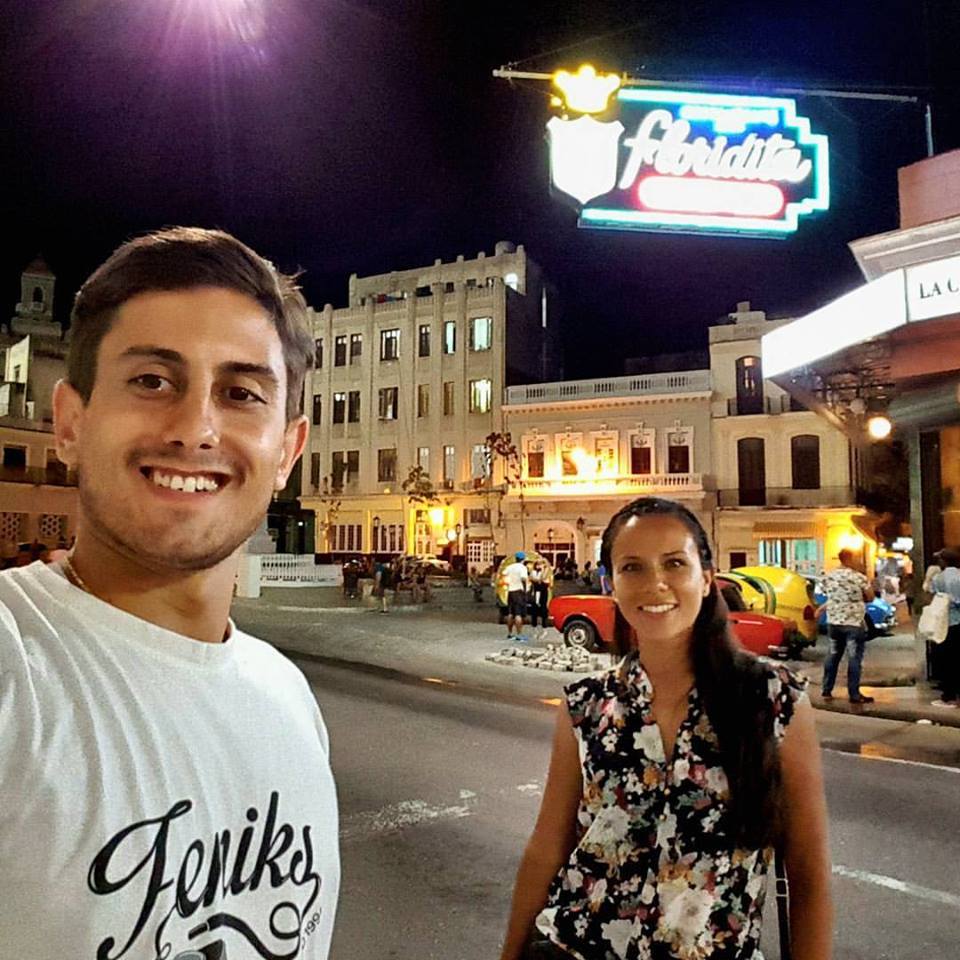
What do you like most about Osijek?
Laura del Carmen: To be honest my first impression of the city wasn’t anything special. I came here during a grey rainy autumn day when almost no one was on the streets and I had a feeling that nothing happens here.
Through my engagement in the theater, I started to meet more and more people. Their kindness and willingness to help me to accommodate in a new city really impressed me. I really like the people here. Also, walking on the Promenda during the summer when everyone is so relaxed and chilled is another thing I like.
When did you realise you want to stay in Osijek forever?
Laura del Carmen: My contract was part-time as a ballet dancer in the theater and with that, I was also a leader of the ballet studio where I’ve been working with participants – lovers of ballet art, professional dancers, and amateurs. The theatrical performance in which I was a choreograph, was very well received by Osijek’s audience. After nine months, my contract finished and with problems with my work visa, I had to go back to Mexico despite wanting to stay. Vanja, all the pleasure with my job and the people, were the main reasons to go back to Aguascalientesu in Mexico and complete all the paper work there so that I could stay is Osijek for a longer period. I had a job here, but without the right papers, that wasn’t possible.
How much interested are people in Slavonia in Latin-American dance?
Vanja: For many years, I’ve been dancing in Športsko plesna udruga Feniks where I also volunteer as a dance instructor. There are many people who love dancing and come to us to polish their skills.
Once a month in Tvrđa, we organise latino parties. During these nights which begin at 21:00 and finish after midnight, around 200 people visit and the bravest ones come to the dance floor.
Laura del Carmen: I was really surprised that people in Osijek are so good at latino dances. The dance floors literally burst with energy and that makes me happy. I really love to see all of them and of course join them in dancing, even though my biggest love was and still is ballet.
What’s the situation with artistic dance in Slavonia?
Laura del Carmen: I teach ballet at Dragutin Tadijanović Elementary School in Vukovar and at the “Franjo Kuhač” Music School in Osijek, and the kids are really interested and have an excellent predisposition. It would be much better if the time spent at school was longer because ballet is demanding and when you want to be a professional, it needs a lot more work.
Vanja: Generally speaking, the state doesn’t encourage the development of dance and dance culture enough. While in other parts of the world, dance is regarded as art and it has great respect, that’s not the case with us. This is backed up by the fact that many dancers come from other countries. The state doesn’t invest enough in the dance sector, and it certainly should, because there are some really talented dancers in our country.
Where do you see yourselves in ten years?
Laura del Carmen: We love and we live for dance. I’m in love with ballet and it’s everything to me. We’d love to work on projects to connect art and social dances. Even though to people who don’t deal with dance that may seem incompatible, it’s very feasible with lots of training. Some projects would be exclusively related to ballet without the intervention of salsa and vice versa.
Vanja: Salsa became much clearer and more accessible to me from the moment I started doing ballet. That’s actually very strange, but ballet gives one great control and vision over your body. When you become aware of this, the social dances that I engage in became a lot more clear to me.
Our idea is to open a private company that would offer performances and show programs. All this upgrades with ballet, which is the basic part. The one I’d be dealing with would be salsa, and Laura would have developed more in the field of ballet. In the rest of the world, it’s been quite well developed.
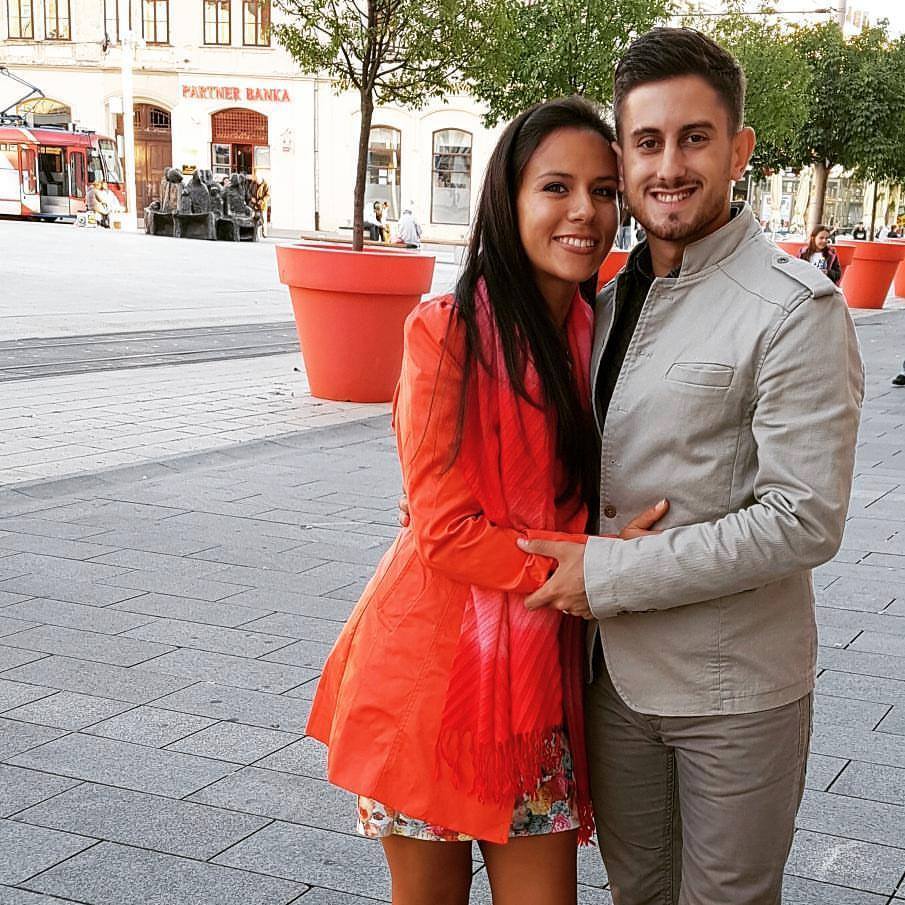
Have you considered leaving Osijek?
Vanja: We’ve been talking a lot about our future in Slavonia and somehow, we came to the conclusion that for one, family life is more affordable here than it would be in Mexico or in some other country. Osijek is a quiet and safe city and that’s the thing we see as an advantage when we talk about raising our future kids one day.
We aren’t anywhere near aware enough how lucky are we as a nation to have so much time to be able to spend with our family and friends; all the people who’ve lived in other countries understand that feeling much better. Unfortunately, our mentality here is that even people who have a decent job simply have to complain.
Laura del Carmen: It’s well known that many Mexican people want to accomplish the well-known ”American dream”, but they don’t achieve it a lot of the time in the States where they work low paid jobs, as opposed to the ones they dreamed about, or jobs that satisfy them. In recent times, more and more people have moved to Ireland and Germany because there, safer and better-paid jobs await them. They have their dreams and we hope they will achieve them. But we decided to stay living here and fight for a better future in the best possible way we know how.


